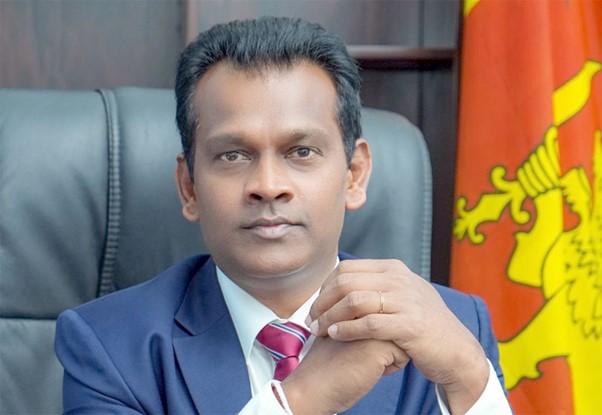Sri Lanka’s Deputy Minister of Tourism, Ruwan Ranasinghe, announced in Parliament on 7 October 2025 that all land currently held by Sri Lankan security forces in Trincomalee will soon be released for “tourism projects.” This announcement comes amid ongoing disputes over land rights in the Tamil homeland.
Trincomalee, a historically Tamil district, has been a key target of Sinhalisation for decades. Since the end of the armed conflict in 2009, the Sri Lankan government has facilitated land grabs, enforced state-sponsored demographic changes, and repeatedly failed to return occupied land to its rightful civilian owners.
Ranasinghe claimed that the release of land aims to boost tourist investment and promote regional development in Trincomalee. However, it remains unclear whether Tamils will be able to reclaim and return to land that is rightfully theirs.
Meanwhile, farmers in Muthunagar have been participating in a continuous satyagraha protest in front of the Trincomalee District Secretariat. They demand the return of farmlands seized for a state-supported solar power project. According to the farmers, 800 acres of agricultural land have been acquired for the project, and two local reservoirs have been filled in to accommodate its development—further endangering the region’s fragile water resources.
The protesters complain that, despite repeated promises from Sri Lankan authorities, their livelihoods remain threatened as corporate interests continue to take precedence.
In July 2025, Tamil residents of Trincomalee held a peaceful demonstration opposing the leasing of land to outsiders. The protesters carried placards and chanted slogans, demanding that land be returned to the local community. They also voiced their frustration over the ongoing injustice related to land rights in the region.
Further evidence of Trincomalee’s “Sinhalisation” surfaced during the 2025 budget debate earlier this year. Shanmugan Kugathasan, an Ilankai Tamil Arasu Kachchi (ITAK) Member of Parliament, revealed that 3,820 acres of land had been taken over by Sinhala Buddhist monks under the guise of “Pooja Bhoomi.” This term refers to land seized for Buddhist religious use in the Tamil homeland and highlights a pattern of Buddhist temples being constructed on Tamil-owned land. These developments occur under the protection of military and police forces despite the minimal presence of a Buddhist population in the area.
The ongoing land disputes in Trincomalee reflect deep-rooted tensions and raise serious concerns about the future of the Tamil community’s connection to their ancestral lands.
http://www.tamilguardian.com/content/tamil-land-held-sri-lankan-security-forces-be-released-tourism-development
